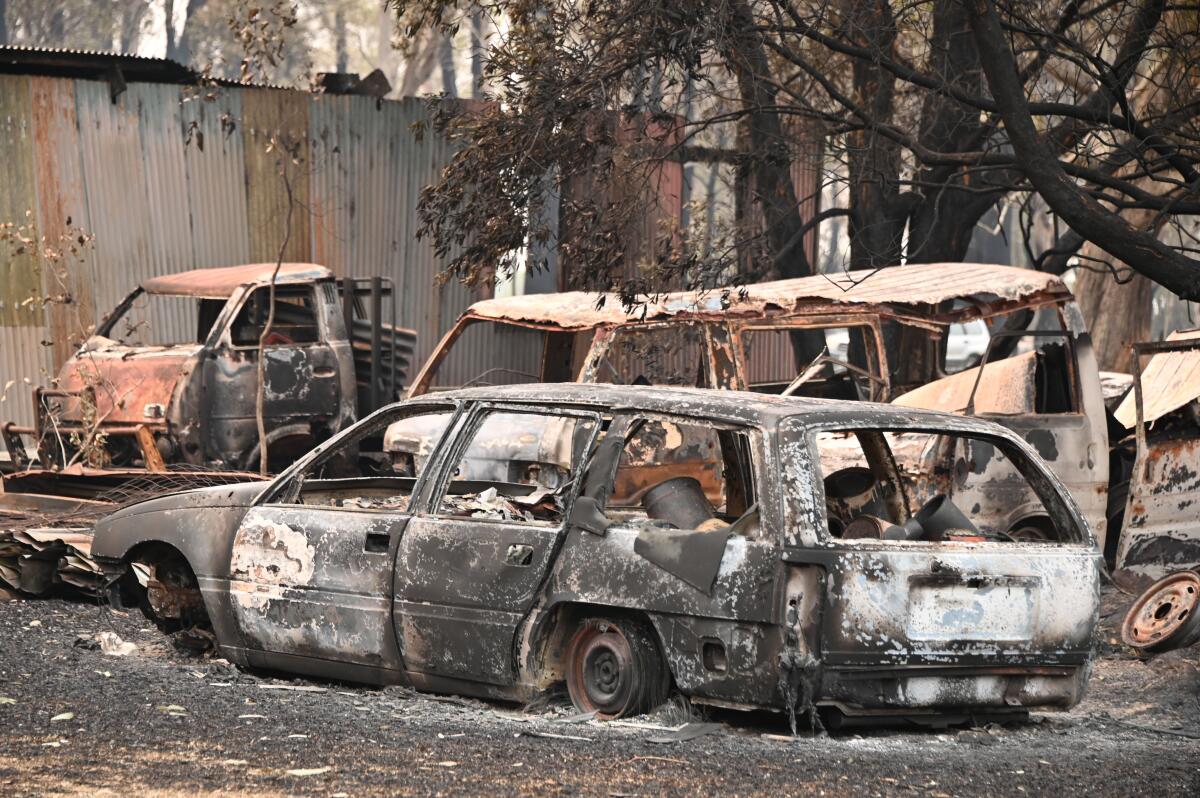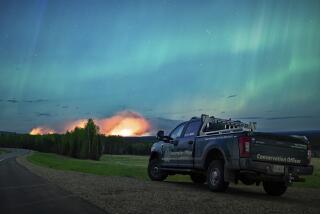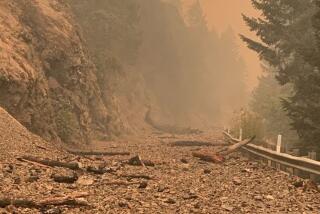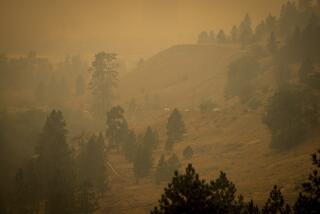Australian state declares emergency due to wildfires

CANBERRA, Australia — Australia’s most populous state declared a state of emergency on Monday due to unprecedented wildfire danger as calls grew for Australia to take more action to counter climate change.
David Elliott, state emergency services minister in New South Wales, said residents were facing what “could be the most dangerous bushfire week this nation has ever seen.”
Fires in the state’s northeast have claimed three lives, destroyed more than 150 homes and razed more than 3,700 square miles of forest and farmland since Friday.
Doctors and paramedics have treated more than 100 people for fire-related injuries, including 20 firefighters, Ambulance Commissioner Dominic Morgan said.
North of New South Wales, wildfires destroyed nine homes on Monday in Queensland state, where air quality plummeted in Brisbane, the state capital, and surrounding cities.
Fire conditions are forecast to be worse on Tuesday than at the peak of the current fire emergency on Friday.
The state government announced that 367 schools and technical colleges would be closed Tuesday because of the fire risk. Australian military personnel are supporting 1,500 firefighters as they battle 60 blazes across the state.
Premier Gladys Berejiklian said the last time a state of emergency was declared in New South Wales was 2013 when there were extensive fires in the Blue Mountains west of Sydney.
“The catastrophic weather conditions mean that things can change very quickly,” she told reporters in Sydney.
Catastrophic fire danger has been declared for Sydney and the Hunter Valley region to the north on Tuesday with severe and extreme danger across vast tracts of the rest of the state.
The weeklong declaration of a state of emergency gives the Rural Fire Service sweeping powers to control resources and direct other government agencies
The annual Australian fire season, which peaks during the Southern Hemisphere summer, has started early after an unusually warm and dry winter. The crisis has reignited debate on whether Australia has taken enough action on climate change.
Australia is the world’s largest exporter of coal and liquid natural gas. It is also the world’s driest continent after Antarctica, which scientist say leaves Australians particularly vulnerable to weather extremes associated with a changing climate.
Carol Sparks, a local mayor who lost her home in a fire near the New South Wales town of Glen Innes, said climate change had contributed to the emergency.
Some residents in the path of dangerous fires blame the intensity of flames on environmentally focused lawmakers who have prevented regular controlled burning of forests to reduce the fuel load in the tinder-dry landscape for fear of smoke and harm to wildlife.
The leader of the minor Australian Greens party, Richard Di Natale, and the party’s climate spokesman, Adam Bandt, blamed Prime Minister Scott Morrison’s government for the crisis.
“Scott Morrison has not got the climate crisis under control,” Bandt said.
Morrison said Saturday that he had not considered whether the unprecedented fires scorching New South Wales and neighboring Queensland state were linked to climate change.
“My only thoughts today are with those who have lost their lives and their families, the firefighters who are fighting the fires, the response effort that has to be delivered and how the Commonwealth has to respond in supporting those efforts,” Morrison told reporters.
Morrison’s deputy Michael McCormack said Monday that now was not the time for political debate on climate change.
“What people need now is a little bit of sensitivity, understanding and real assistance. They need help; they need shelter,” McCormack told Australian Broadcasting Corp.
“They don’t need the ravings of some pure, enlightened and woke capital city greenies at this time,” McCormack said. “What they don’t need is Adam Bandt and Richard Di Natale trying to get a political point score on this. It is disgraceful, it is disgusting, and I’ll call it out every time.”
Ken Thompson, who was deputy commissioner of Fire and Rescue in New South Wales until 2011, co-founded the group Emergency Leaders for Climate Action, which includes 23 former senior fire and emergency service leaders from across Australia.
Thompson said he was frustrated that the prime minister had refused to meet with them.
“Our main concern is, with bushfire, that our fire seasons are becoming much, much longer than they used to be,” Thompson said.
Australian firefighters relied on the same firefighting aircraft that were used to combat wildfires in the Northern Hemisphere fire season, he said.
“Those aircraft come down during our fire season at the end of the North Hemisphere fire season,” Thompson said. “The problem is that their fire seasons have become a lot longer as well, so we’re being left vulnerable by not having those types of aircraft available to us in Australia at a time when we most need them.”
More to Read
Sign up for Essential California
The most important California stories and recommendations in your inbox every morning.
You may occasionally receive promotional content from the Los Angeles Times.










